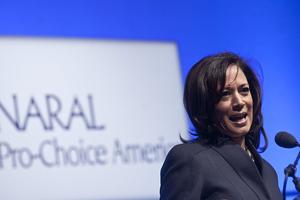Bishop Encouraged by Church's Efforts Despite Congo Turmoil
Bishop Nicolas Djomo of Tshumbe in the Democratic Republic of the Congo has been seeking help to rebuild his diocese after five years of armed conflict in Central Africa.
With a delegation of African bishops, Bishop Djomo, who is president of the Association of Episcopal Conferences of Central Africa, appealed to the U.S. bishops to pay more attention to Africa.
A former seminary rector, Bishop Djomo holds a doctorate in psychology from the Sorbonne. Register correspondent Connie Pilsner interviewed him in November before the meeting of the U.S. Conference of Catholic Bishops in Washington, D.C.
How has the present conflict in Central Africa affected you and the people of your diocese?
The three countries of the Association of Episcopal Conferences of Central Africa, located in the Great Lakes Sub-Region of Africa — namely Burundi, Democratic Republic of the Congo, and Rwanda — have been deeply involved in conflict. Burundi has endured nearly 10 years of civil war since 1993.
In the Democratic Republic of Congo, the present war, begun in 1998, has resulted in more than 3.5 million people killed, many more displaced, children and young boys pressed into armies and combat situations, and socioeconomic infrastructures — such as schools, hospitals, health care centers — destroyed. Churches, rectories and convents have been razed or pillaged, and members of the clergy, including several bishops, have been killed.
In Rwanda, site of the inauguration of the Marian Shrine of Kibeho, in the Diocese of Gikongoro, where the Virgin Mary appeared several times throughout the year in 1981, the situation seems calmer.
This conflict you speak of left your diocese with no outside contact for four years. Two years ago your own initiative resulted in obtaining humanitarian aid from Catholic Relief Services. What role did you take?
I negotiated with the military leaders to allow humanitarian aid in. They trusted me as a Catholic bishop. Up until February 2002, the only contact with the outside world was two air shipments by Catholic Relief Services. They sponsored a riverboat convoy, delivering soap, iodized salt and educational materials. This year a refugee convoy united 800 families that were living in the capital as internally displaced people.
As president of the Association of Episcopal Conferences of Central Africa, what is your main goal?
My goal is the same as that of the founding fathers of the association, which is to promote “dialogue and cooperation in view of a deep evangelization of each and every African who is called to Christ's Body.” Unfortunately, many people who have long considered each other brothers have met in opposition. One of the main goals of the association is to promote the continuance of appeals for peace and reconciliation.
How has the Catholic Church helped to provide stability and structure in your country?
Everyone depends on the support provided by the diocese. Our goal is to restore their dignity as human beings made in the image of God.
I have emphasized that we must work for a common goal, in which the rights of all people are considered. This is basic for a country. We are working in our diocese with the Commission for Justice and Peace to educate the people about how to work together. This is very important for the future of the country.
Catholic Relief Services supplied your diocese with medical relief. What are some of the medical problems prevalent in your community?
My people need medicine for malaria, tuberculosis, river blindness, sleeping sickness and diseases coming from unclean water — parasites. Rwanda, Burundi and Uganda have AIDS, which the military conflict has helped spread to the people of the Democratic Republic of the Congo. Since my diocese is in such a remote area of the Congo, with no paved roads, AIDS had not entered our community until now.
How will you confront the problem of AIDS in your diocese?
We are preparing for AIDS through education by abstinence, by teaching the people to change behavior and to be faithful in marriage. We are just beginning this endeavor now that the war is over.
How would you deal with humanitarian efforts to distribute condoms to your people as a solution to AIDS?
We don't have that problem, since we are in such a remote area. However, I would refuse this as a solution.
What was it like to grow up in your village of Lushimapenge?
It was different, as there was no war. I saw the priests helping the young and old. They built schools and even encouraged girls to attend. The Catholic schools were indiscriminately for all people.
Would you say the life of the Catholic Church in your diocese is thriving?
We have 86 diocesan priests and 137 nuns. There is a local congregation of the Sisters of St. Francis of Assisi of Tshumbe, whose apostolate is education and health care.
Although one-third of the people in the diocese are baptized, I don't have statistics on how many are practicing. However, the Masses are full, beautiful and joyous. Each parish has at least one daily Mass, and some parishes have Mass more than once a day.
Connie Pilsner writes from New York.
- Keywords:
- Dec. 14-20, 2003












